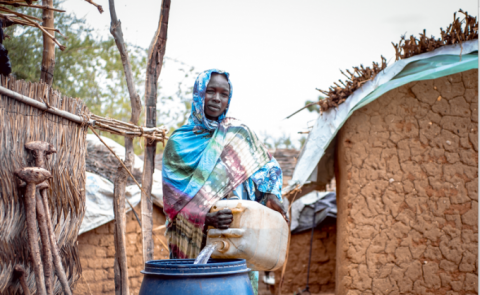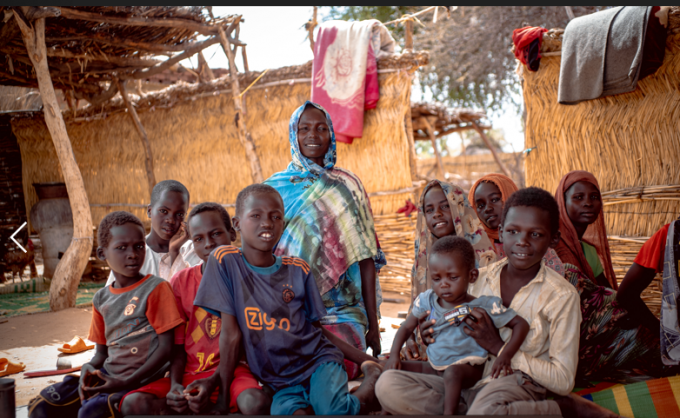A source of life and safety: Accessibility to clean water helps young mother keep herself and her 8 children safe

Save the Children, funded by the Basque Government, rehabilitated a water source in West Darfur, significantly contributing to the safeguarding of women and children from diseases and protection risks.
KUBRA, 25 year old
During the Darfur crisis in 2003, when Kubra was still a child, fighting erupted in her home village. Her family left their land and belongings behind and fled to safety in an IDP camp in Kreinik locality, West Darfur. Life was very hard in the camp, especially as Kubra was married off just after reaching puberty:
“I grew up in the camp and I was very young when I got married. Now I have eight children, seven boys and a girl, and I am only 25 year old. It is very challenging to raise my children in the camp. To make sure they are not hungry and to deal with diseases and infections like malaria and watery diarrhoea. Yet, this is the only home I have, I don’t know any other one.”
After decades of repeated conflicts and displacements in the area, the camp is now hosting 13,000 people. Essential resources, such as clean water, are scarce.
Kubra explains: “The water pump in the camp broke down last year and we had to walk around 20 minutes to reach another one in the valley. During this time, I used to leave my kids at home alone, which worried me a lot. During the autumn season, I had to walk even further, because the Wadi (water stream) flooded, cutting us off from the pump in the valley. It would take a lot of time to return home.”

Armed robberies are common in the camp’s market and Kubra worries that her children could get into the cross fire. Some children have also been kidnapped in the past. Lastly, there is a big road nearby and they could simply be hit by a car. Leaving the camp on foot also poses a high risk for the women. The area is still very volatile and with high incident rates of armed robberies and gender-based violence, including rape.
To reduce the risk for women and to enhance children’s and women’s health the Basque government funded a project to rehabilitate water infrastructures in West Darfur: In 2022, implemented by Save the Children, the water point started working again, to the great relief to Kubra and her neighbours:
“Thankfully, the water yard is now working with four new pipes. I will never have to leave my children alone again to find water for drinking or cooking food. With the new water supply, I can also farm inside the camp and be near my children. Before I was sometimes working on other people’s land outside the camp which is risky.”
Kubra and her relatives are farmers and used to produce their own food. She is still doing that, when she can obtain enough seeds for the farming season. Also, she tends the land of other farmers and sells charcoal on the market to make ends meet. Life remains very challenging for Kubra, however, the new water source significantly eased some of the burden on her and other women and children.
Within only 6 months, the project funded by the Basque government and implemented by Save the Children, supported more than 10.000 people with improved water sources, including activities such as testing and improving the quality of the water sources, promoting hygiene measures, construction of emergency and gender-sensitive latrines and handwashing facilities, as well as the provision of garbage collection tools, among others.
 Sudan
Sudan